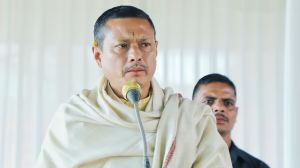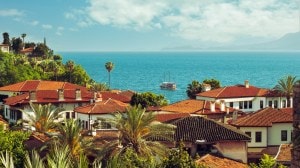Two US policies for 2 ‘axis’ states
US Deputy Secretary of State, Richard Armitage’s today set out on a week-long tour of Asia for talks on Iraq and North Korea, two of th...

US Deputy Secretary of State, Richard Armitage’s today set out on a week-long tour of Asia for talks on Iraq and North Korea, two of three countries US President George W. Bush termed an ‘‘axis of evil’’ for suspicion of having weapons of mass destruction. The tour underscores contrasting US approaches towards Baghdad and Pyong Yang and their suspected nuclear arsenals and other banned weapons.
Iraq’s declaration yesterday denying it has weapons of mass destruction is being analysed by a sceptical Washington, which has mustered an international coalition and vowed to force Baghdad to disarm if UN inspectors fail to do so.
North Korea, which told the United States in October that it was secretly processing uranium for arms, has defiantly asserted its right to wield such weapons in the face of what it sees as nuclear threats from the United States and it’s 37,000 troops in South Korea. While the US-led pressure builds on Iraq, communist North Korea has been given a fresh chance to meet international demands that it abandon the uranium project, which violates key international non-proliferation treaties.
Diplomatic sources said on Friday, the multinational organisation in charge of energy projects in North Korea has postponed a high-level meeting until January, delaying a joint decision on it’s nuclear arms programme.
The Korean Peninsula Energy Development Organisation (KEDO), was set up under a 1994 agreement which promised North Korea fuel oil and nuclear power stations in return for a freeze on a plutonium-based nuclear arms programme. KEDO suspended the oil shipments last month, and the meeting of the allied group would have discussed the future of two light-water reactors now under construction in North Korea.
US officials say there will be no ‘‘cookie-cutter approach’’ to states posing seemingly similar menaces. However, analysts view North Korea’s geographic, political and military circumstances quite different from those of Iraq.



- 01
- 02
- 03
- 04
- 05




























